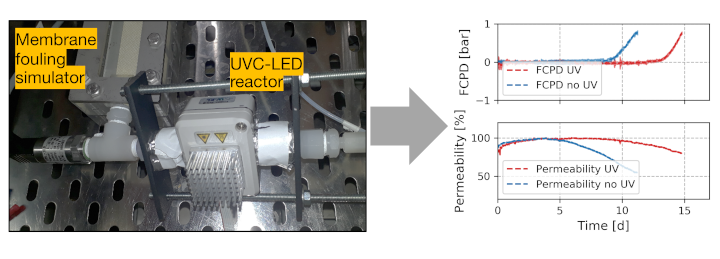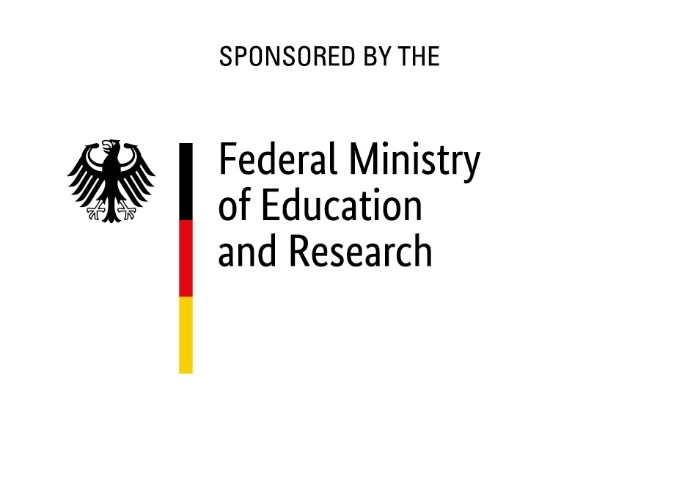PULB - Pulsed UV-LEDs vs Biofouling
Development of a UV irradiation system to increase the resource efficiency of water treatment by reverse osmosis membranes
As part of a collaborative BMBF research project, we aim to develop an innovative UV irradiation system that is based on pulsed UVC-LEDs to mitigate biofouling in reverse osmosis (RO) membrane processes by UV pre-treatment. UVC-LEDs have many advantages over conventional mercury vapor lamps, which makes them environmentally friendly and, due to their size, they can potentially be integrated into the pressure vessel of RO membrane systems as an in-situ treatment.
The membrane filtration research group investigates the efficiency of the novel UVC-LED system in lab- and pilot-scale experiments. Accelerated biofouling experiments are conducted by additionally dosing nutrients to the feed water. A pre-defined biofouling protocol allows conducting biofouling experiments with and without UV pre-treatment in a well-defined and reproducible manner.
The UVC-LED system will be characterized with regard to its UV fluence by using actinometry and biodosimetry. A further research focus of this collaborative project is to evaluate the efficiency of the innovative UVC-LED system based on typical membrane module performance parameters, such as permeability decline and feed channel pressure drop (FCPD) increase (Figure 1). The built biofilms are extracted and analyzed for various parameters including ATP content, extracellular polymeric substance composition and microbial diversity.
When applying an intermittent current as power supply, UVC-LEDs can generate pulsed irradiation. Through fundamental investigations, we plan to determine the inactivation efficiency and mitigating effects on biofouling of pulsed UVC irradiation at various duty cycles and fluence rates.

Figure 1: UVC-LED reactor attached to a membrane fouling simulator and the effects of UV pre-treatment on the feed channel pressure drop (FCPD) increase and permeability decline (Sperle et al.,Membranes 2020, 10,415)
| Project Leader | Prof. Dr.-Ing. Jörg E. Drewes |
| Researcher | Philipp Sperle |
| Funding | Federal Ministry of Education and Research (BMBF) |
| Collaboration | UV-EL GmbH DELTA Umwelt-Technik GmbH |
